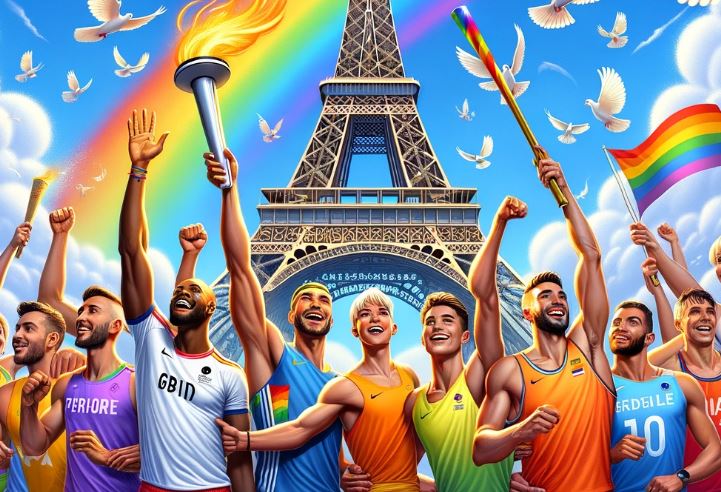Visibility of LGBT+ Athletes at Paris 2024 Olympics
In the tapestry of the 2024 Paris Olympic Games, a novel chapter of inclusivity and prominence for LGBT+ sportspersons is being woven. The Tokyo Olympics crystallized a pivotal moment for the LGBT+ fellowship within the arena of athletics, illuminating the presence of over 180 athletes who openly identify as gay, lesbian, bisexual, transgender, and non-binary. This unparalleled visibility now kindles speculation about the ripple effects the forthcoming Paris Olympic Games could have on the portrayal and embrace of LGBT+ competitors.
An Escalation in Participation and Visibility in Tokyo
The Tokyo Games showcased the significance of LGBT+ visibility in sports, eclipsing all prior participations in the ambit of openly expressing one’s sexuality or gender identity. This breakthrough stems from a protracted journey of activism, societal progress, and a new breed of athletes who no longer shy away from articulating their identities, especially through social media platforms.
Paris 2024 : Towards Amplified Inclusion
Anticipated to be a historic moment for gender equality and inclusiveness with roughly 10,500 athletes from 206 nations, the Paris Games promise an equal representation of female and male athletes. This parity is part of a broader strategy to foster inclusivity and diversity, presenting an unprecedented opportunity for LGBT+ athletes.
The incorporation of four additional sports at Paris 2024 (breaking, climbing, skateboarding, and surfing) signifies an eagerness to encompass modern and varied lifestyles, thereby enabling a fresh cohort of athletes to carve their niche within the Olympic movement.
Read also : LGBTQ+ and the Olympic Village
Promising Policies of Openness
The International Olympic Committee (IOC) is exhibiting signs of transitioning towards greater openness to athletes’ personal and political expressions, albeit within stringent boundaries. This shift could substantially enhance the visibility and inclusion of LGBT+ athletes in the years ahead.
LGBT+ Athletes Already Qualified and Others in Contention
Among the LGBT+ athletes already qualified for Paris 2024, we find Robbie Manson and Emma Twigg (New Zealand, rowing) along with Campbell Harrison (Australia, climbing). Probable contenders include personalities such as Jack Woolley (Ireland, Taekwondo) and Yulimar Rojas (Venezuela, Athletics), promising a rich and diverse representation from the LGBT+ community.
Conclusion : A Promising Horizon
The Paris 2024 Olympics are shaping up to be a pivotal moment for the inclusion and visibility of LGBT+ athletes, mirroring the evolving attitudes and policies within global sports. There is a high hope for not only an increased participation of these athletes but also for the recognition and celebration of their contributions to sports and society at large.
FAQ
Q : How many LGBT+ athletes participated in the Tokyo Olympics ?
A : More than 180, setting a new benchmark for visibility.
Q : What are the new sports introduced at Paris 2024 ?
A : The newly introduced sports include breaking, climbing, skateboarding, and surfing.
Q : Why is the visibility of LGBT+ athletes in sports important ?
A : It underscores the essence of inclusion and respect for diversity, encouraging LGBT+ youths to pursue sports without fear.
Q : How does the IOC support the inclusion of LGBT+ athletes ?
A : The IOC is moving towards greater openness to personal expressions of athletes, within a strict framework, thereby promoting inclusion.
Q : Which LGBT+ athletes are already qualified for Paris 2024 ?
A : Among them are Robbie Manson and Emma Twigg in rowing, and Campbell Harrison in climbing.
The Paris 2024 Games are anticipated to be a historic milestone for the inclusion and visibility of LGBT+ athletes, signifying a positive shift in the sporting world.













